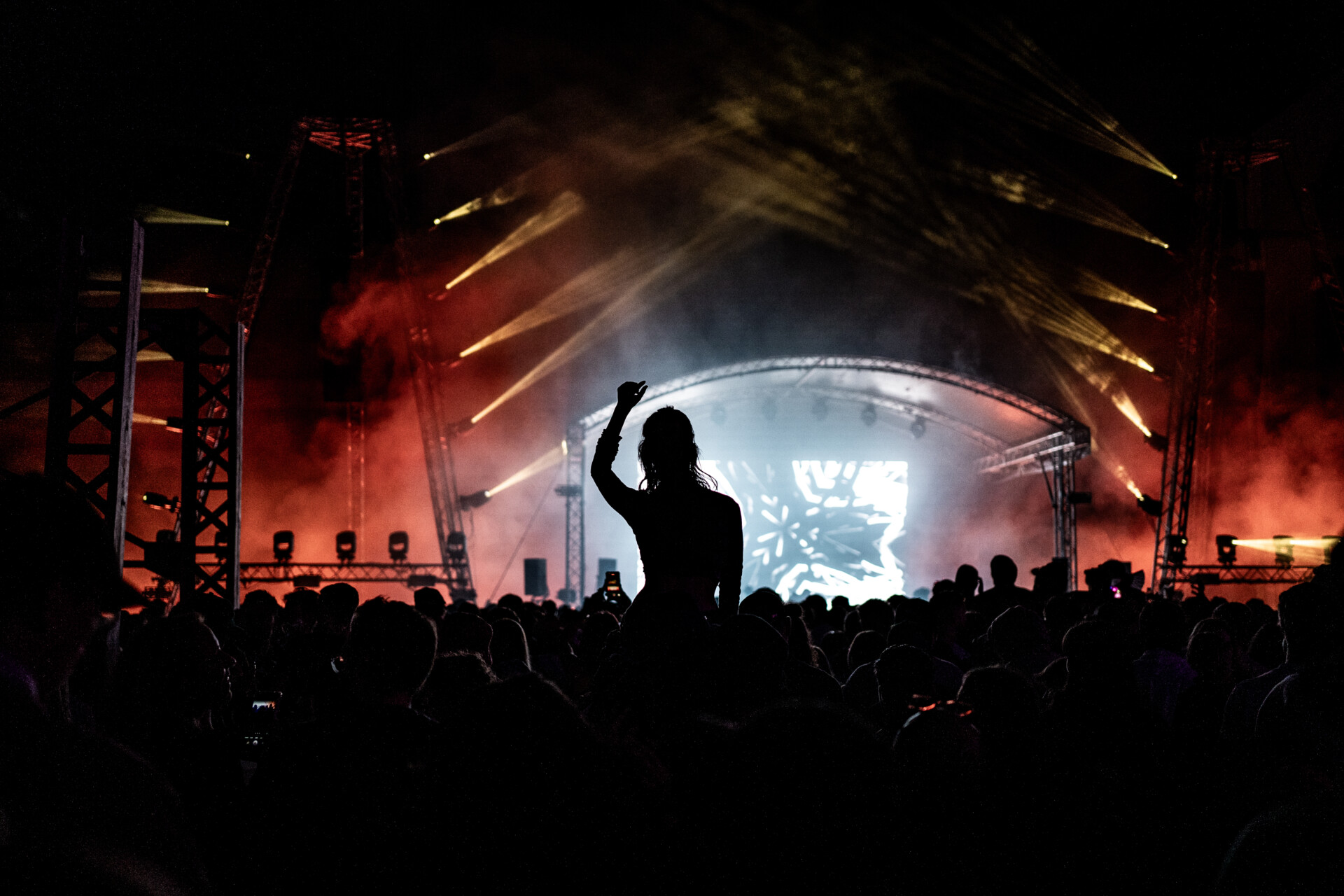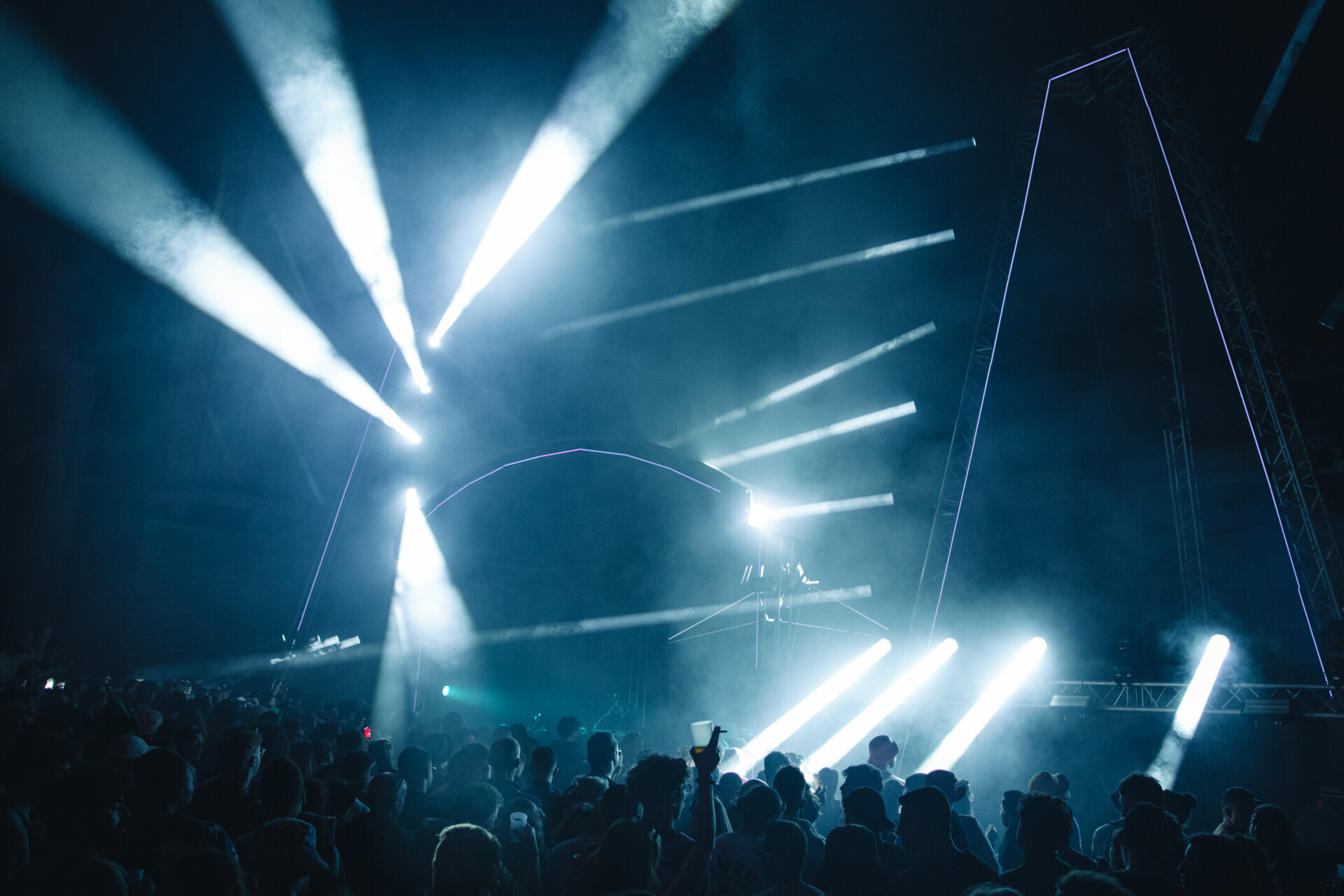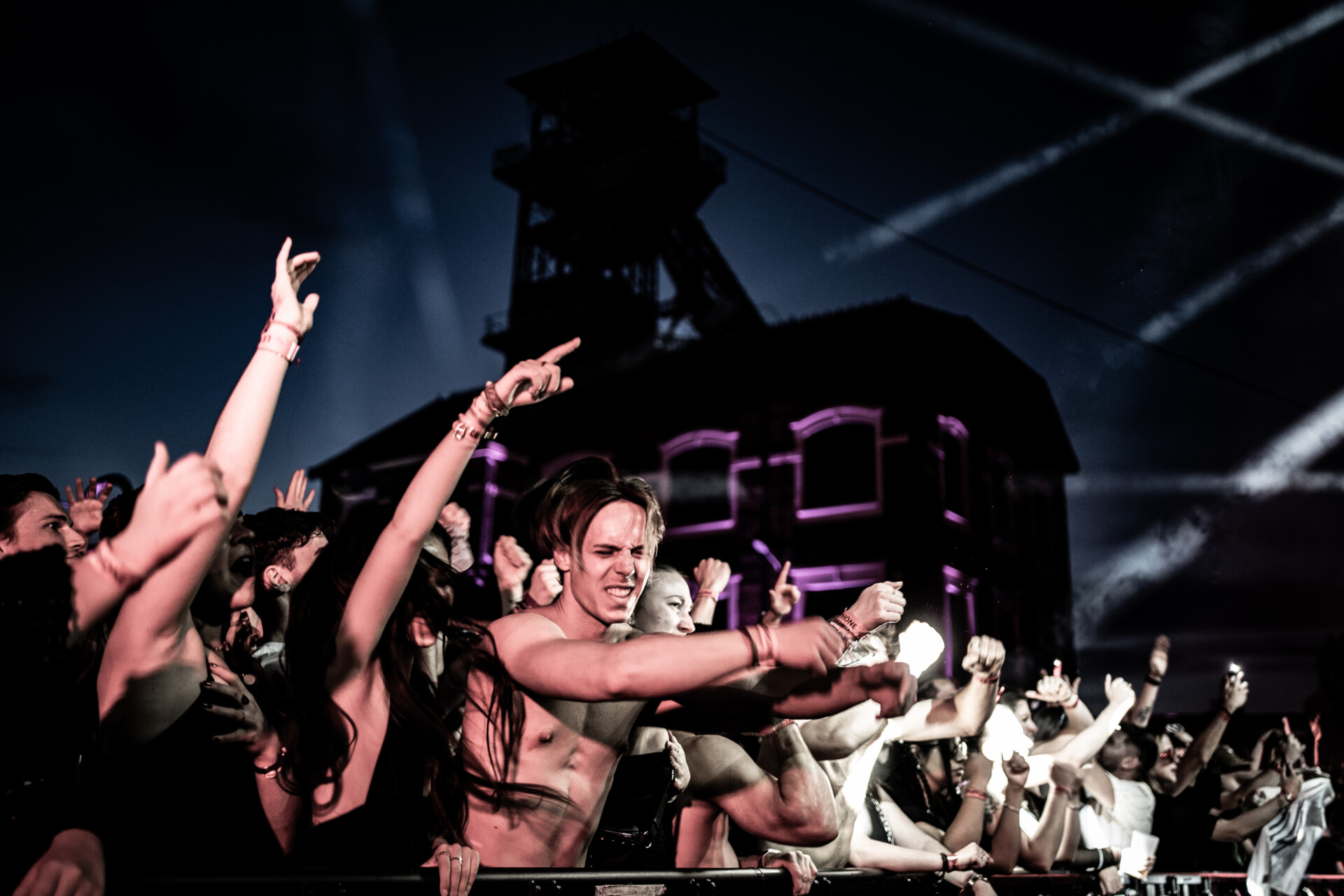No products in the cart.

We chose to talk about NAME Festival because it represents everything we love about techno: impactful artists, rare loyalty in a fast-moving scene (big up to Ellen Allien, the long-time patron), and fair pricing that respects the dancefloor.
No pretenses here, no commercial compromises. Just the techno we love.
With this Open Air edition, you mention a return to basics and taking bold risks. Specifically, what did you want to change or preserve in the NAME’s identity?
“NAME was created in 2005 as a pioneer among electronic music festivals in France, offering an alternative to raves and clubbing. We built it on the foundational values of Art Point M since 1991: inclusivity, tolerance, open-mindedness, accessibility, and cultural diversity. For 20 years, it has championed female and emerging artists. Today, with the democratization of electronic music and increasing competition, we’re returning to basics: a more alternative program, longer sets to enhance immersion and discovery, preserving our independence and affirming our core values.”
— Sabine Duthoit
“For me, a spectator since 2015 turned organizer, returning to basics means striving for simplicity while retaining NAME’s hallmark features: renowned or emerging artists, an exceptional industrial location deeply tied to Northern history, and a firm shift to daytime events. This involves a more progressive two-day programming format, allowing artists the time to build unique connections with the audience.”
— Gaël Troussier
Ellen Allien has been the festival’s patron since the beginning; how does this artistic loyalty shape NAME’s spirit?
“Ellen Allien is a major artist, a pioneer who continuously reinvents herself. She naturally embraced the role of patron, shaping the festival’s spirit through her loyalty and ongoing commitment.”
— Sabine Duthoit
You’ve made the strong choice of accessible pricing. Is this also a way of advocating an alternative festival model to more mainstream techno events?
“Absolutely! Accessible pricing means a less “bling” lineup and economically sensible organization to achieve financial balance. The challenge is to unite a broad audience that no longer identifies with current techno events, while also appealing to younger crowds within a now fragmented electronic scene.”
— Sabine Duthoit
“Yes, it’s a deliberate decision to avoid the constant pursuit of “bigger and more spectacular,” which leads to rising costs and negatively impacts economic and environmental sustainability. NAME slows the pace, returning to more balanced formats that remain financially accessible.”
— Gaël Troussier
But is it viable?
“This is a real-world test! Viability hinges on alternative programming and balanced attendance. We’re convinced there’s genuine demand for this alternative model, and the May festival will confirm it concretely.”
— Sabine Duthoit
“Economic viability is indeed a gamble. With rising artist fees and technical costs, we’re aiming for a model that doesn’t rely on maximizing attendance. It’s achievable through rigorous budgeting, radical choices, and strong support from our partners and public funding. This test edition will show if the electronic scene and public follow this path.”
— Gaël Troussier
What special role will design play in this year’s NAME Open Air experience?
“With Art Point M, led by Fanny Bouyagui, design is central. We create scenographies, performances, and large urban parades. The industrial site of 9-9bis Métaphone is a new creative playground, offering numerous opportunities to refresh the festival’s visual experience.”
— Sabine Duthoit
If you had to choose one track from each announced artist?
- 9×9 : Ich Glaube Ich Spinne
- Âme Live : Howling (Âme remix)
- Ellen Allien : Sehnsucht <3
- Hardt Antoine : son edit de Sing it Back (Moloko) !
- Jennifer Cardini : Howling – Lover
- (Jennifer Cardini & Damon Jee remix)
- Mala Ika : Werde Immer High
- Salome : Hacker
- Yanamaste : Evil

Final words?
— Sabine Duthoit : “Forward!”
— Gaël Troussier : “Party, party, party!”
Tagged with :



